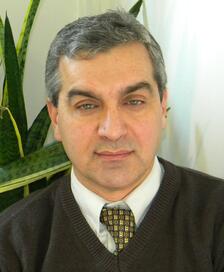Keynote Speaker-----Prof. Dr. Francesco Secundo

Institute of Chemistry of Molecular Recognition, National Research Council of Italy, Milan, Italy
Biograph
Dr. Francesco Secundo, male, biochemist, graduated (Laurea in Biological Sciences) at the University of Milano, Italy in 1992. He has conducted research activity at the Institute of Chemistry of Molecular Recognition, CNR, in Milan, since 1986. His research activity is documented by more than 100 articles in international journals (H-index 27, Scopus). His research work has dealt with the preparation and use of enzymes in organic synthesis and for other biotechnological purposes, analyzing the role of enzyme formulation on enzyme conformation and activity. He also carried out analysis of proteins, lipids or antibiotics in food by different analytical techniques. He is Associate Editor for Biocatalysis and Biotransformation journal and a member of the Editorial board of Bioscience and Bioengineering.
Speech Title: Lipids and lipases for lipids modification
Abstract: Fatty acids (FA) composition in lipids and phospholipids has been widely studied, because of the potential impact on human health. In particular, the discussion at the meeting of the Federation of European Nutrition Societies in Berlin, October 2015, led to the conclusion that diet guidelines should continue to recommend limiting dietary saturated fatty acid (SAFA), but at the same time emphasize the importance of replacing SAFA with polyunsaturated fatty acids (PUFA) to reduce cardiovascular disease risk [1]. SAFA consumption is regarded as an important risk factor for cardiovascular diseases (CVD), due to their association with increased blood cholesterol. Furthermore, replacement of trans-fatty acids with PUFA has the most favorable effect on reducing low-density lipoprotein-cholesterol (LDL-C) and therefore the CVD risk.
Many different strategies have been adopted, with the aim to prepare lipids enriched in beneficial PUFA.
On one side, there is more attention to the animal feeding to improve fat quality in the food obtained from them (e.g., eggs, milk, farmed fish, etc.). Alternatively, modification of lipids by enriching them with PUFA is a very common procedure. In particular, the use of enzymatic methods for this latter purpose is a very natural-like approach that has been explored for numerous lipids and natural compounds interesting for the food industry [2]. Among the various enzymes, lipases are the most established biocatalysts used for the synthesis of structured triacylglycerols, fats, and margarine and for the release of flavoring fatty acids for food applications.
In the presentation that will be held at ABS2018 and ABB 2018, both aspects will be reported and discussed. It will be reported an example of how a different feeding of cows (grazing at different altitude of the Alpine region or fed with a diet usually adopted in cowshed) affects the fat content and fat composition of cow milk [3]. Furthermore, examples of lipids modifications by lipases and the strategies adopted to improve this methodology will also be presented [4].


